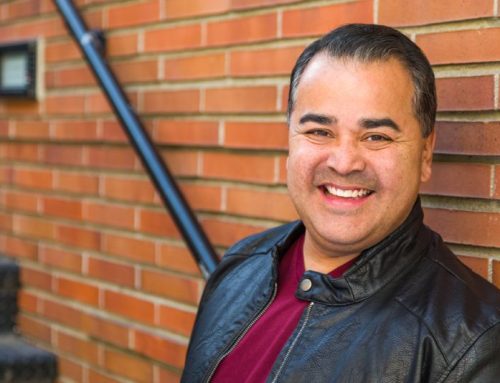At Hanlon Law Group, we often meet clients in Los Angeles and Pasadena who are worried about how a past criminal conviction may affect their ability to obtain a U.S. visa. U.S. immigration law treats certain crimes very seriously, and a conviction on your record can make you “inadmissible,” which means ineligible for a visa. However, not all convictions lead to permanent bars, and there may be waivers or legal strategies available to overcome ineligibility. Understanding how criminal records interact with visa eligibility in 2025 is essential for anyone seeking to live, work, or study in the United States.
Which Types of Crimes Affect Visa Eligibility?
Not every conviction will affect your chances of getting a visa. Immigration law focuses on specific categories of crimes that trigger ineligibility. The most common include:
- Crimes involving moral turpitude: These are crimes considered morally unacceptable, such as fraud, theft, or assault with intent to cause harm.
- Drug-related offenses: Even a single conviction for possession can create problems, although minor marijuana-related cases are treated differently under recent policies.
- Aggravated felonies: Offenses such as murder, rape, and certain theft or fraud crimes carry severe immigration consequences.
- Multiple convictions: Having two or more criminal convictions with combined sentences of five years or more can also create ineligibility.
Each case is unique, and not all convictions automatically prevent visa approval. For example, petty offenses with very short sentences may fall under exceptions. Our attorneys carefully review each client’s record to determine how the law applies to their situation.
How Does USCIS Evaluate Criminal Records?
When you apply for a visa, the U.S. Citizenship and Immigration Services (USCIS) and the Department of State review your criminal history. They may ask for court records, police reports, or certified documents to evaluate your eligibility. In many cases, consular officers have broad discretion in deciding whether a conviction makes you inadmissible.
This process can be frustrating because different consulates may apply the rules differently. Applicants in California often face delays or requests for more evidence if their record contains even minor offenses. Having an attorney prepare the strongest possible application package helps reduce the risk of denial.
Can You Apply for a Waiver After a Conviction?
The good news is that many criminal-based visa ineligibilities can be waived. Waivers are special forms of relief that allow the government to approve your visa despite a conviction. Common waivers include:
- 212(h) waiver: For certain crimes involving moral turpitude, prostitution offenses, or single possession of marijuana under 30 grams.
- Hardship waivers: If denying the visa would cause “extreme hardship” to a U.S. citizen or lawful permanent resident spouse or parent.
- Rehabilitation evidence: Showing that you have been rehabilitated and are unlikely to reoffend.
Applying for a waiver is complex and requires strong evidence. Our attorneys at Hanlon Law Group help clients gather supporting documentation, prepare hardship arguments, and present the most compelling case possible.
How Do Past Arrests Without Convictions Affect Eligibility?
Many people worry about arrests that did not result in convictions. While these do not automatically make you inadmissible, immigration authorities can still ask about them and consider the circumstances. Consular officers may request court records to verify the outcome. Being transparent is important, since failing to disclose an arrest can be viewed as misrepresentation, which itself can make you ineligible for a visa.
We advise clients to disclose all arrests and provide certified court records showing the final disposition of the case. This transparency builds credibility and prevents delays or denials based on missing information.
What Steps Should You Take if You Have a Criminal Record?
If you have a conviction on your record and plan to apply for a U.S. visa, preparation is key. Here are steps we recommend:
- Obtain certified copies of all court documents related to your conviction.
- Meet with an experienced immigration attorney before filing an application.
- Determine whether your offense falls under exceptions or if you qualify for a waiver.
- Gather evidence of rehabilitation, such as employment records, community involvement, or completion of treatment programs.
- Prepare for detailed questioning at your visa interview.
By addressing issues proactively, applicants can avoid surprises during the process and improve their chances of approval.
How Our Immigration Attorneys Can Help
At Hanlon Law Group, we understand how stressful it is to face visa ineligibility because of a past conviction. Our team has decades of experience representing clients in Los Angeles, Pasadena, and throughout California who are dealing with denials and ineligibilities. We review your criminal record, explain how the law applies, and create a personalized strategy to give you the best chance of success.
We also represent clients in waiver applications and appeals, ensuring that every legal option is explored. Our attorneys know how to build strong cases that highlight rehabilitation, family ties, and contributions to the community. We are committed to helping clients overcome obstacles and move forward with their immigration goals.
Contact Hanlon Law Group Today for Help With Visa Denials and Ineligibilities
A criminal conviction does not always mean the end of your immigration journey. With the right legal guidance, many applicants can still qualify for visas or obtain waivers that allow them to enter or remain in the United States. At Hanlon Law Group, we are dedicated to helping immigrants and their families fight back against denials and pursue their American dream.
If you have questions about how your criminal record affects visa eligibility, contact us today. Our immigration attorneys in Los Angeles and Pasadena are ready to review your case and help you find a path forward.




